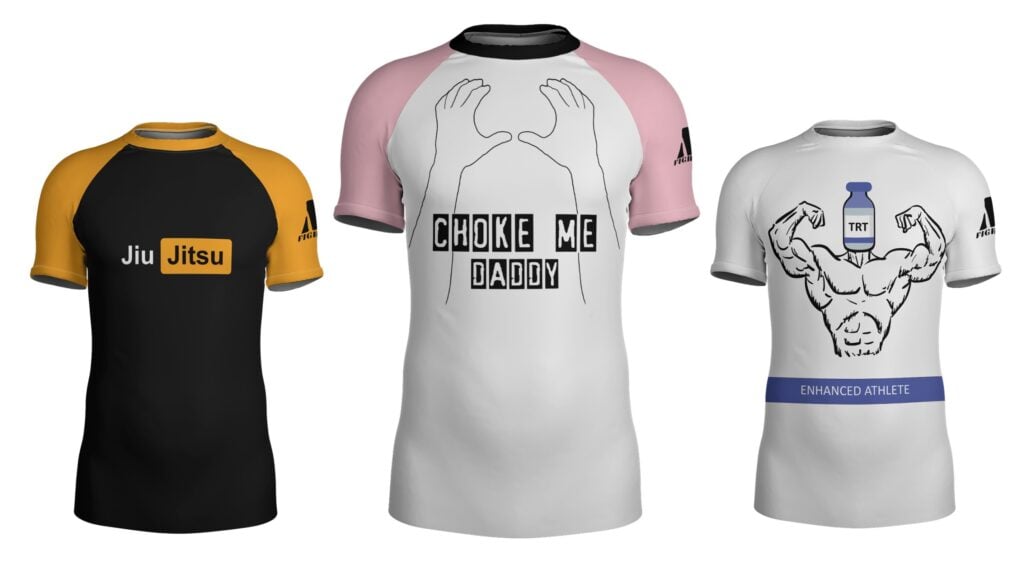
When you learning something for the very first time, it’s very difficult to gauge the optimal route, because you are a beginner. You are not yet a veteran to be able to look back reflect. Often many people look back and say ” I wish I knew about that when I started”, or “I’m glad I didn’t make that mistake.”
Someone getting started with Jiu-Jitsu, what he needs to take care of?. This is not a typical starting kit, these are carefully thought out pieces of advice from some of the greatest that have practiced it.
1. You have to find an academy with experienced coaches that are closest to you.
What counts the most in Jiu-Jitsu, more than techniques, more than what coaches teaching you, is the time spent on the mats. As a general rule of thumb, your time on the mat is more important than what you do on the mats. You need to take care that the gym*s hygienic because the worst thing that can happen to you in terms of your game is not being on the mats. That could be from skin infections or getting sick, so you need a place that keeps good close attention to this. The next thing that you want is cohesion among training partners, you have to find a gym where the training partners come up to your approach smile, bow, shake. Higher belts like purple, brown coming up to you showing techniques, showing you what to do.
2. Gi or No-Gi?
Here we talking about purchasing right in the beginning. Buy one Gi, two rash guards, and one grappling shorts. That’s four items, and that’s all you need to start doing Jiu-Jitsu. Keep it light and easy in the beginning. Train one day, next day is laundry day or one day Gi other No-Gi. Once you decide to commit to Jiu-Jitsu, that’s when you can go and buy more of the gear.
3. Don’t eat fibrous food or dairy within three hours before training
One of the things that surprise many people is that there are foods that you should not eat before Jiu-Jitsu. For example, apples, will be really heavy on your stomach and cause bloating. Food can have a big impact on your performance, so take care of what you eat before training.
4. Warm-up
Some gyms turn warm-ups into boot camp and while that could be good for physical conditioning in general, it’s not necessarily translating into improved grappling cardio. To do that you must grapple intensely. Long warm-up’s are good to avoid injuries, make sure that all joints are warmed up before training.
5. Techniques
This is the big one for everybody. No technique will ever be more important or valuable than a concept, remember this. Your growth in Jiu-Jitsu is not the sum of techniques you have accumulated, it’s your deep understanding of the concepts. Fundamentals don’t mean close guard or any other guard. Fundamentals represent the foundational concepts that allow you to take advantage of leverage. Where you position yourself is more important than how you position yourself.
6. Strength
“Strength is only important if you don’t have it” – Renzo Gracie. It could hinder your learning process by making you over-reliant on it. The differentiating factor between you and other practitioners will be your cardio, your explosiveness, your strength, but that’s only when the gap in technical knowledge is small. The bigger the gap in technical knowledge the less strength will be useful.
7. Mobility
You gotta have the mobility movements, the dynamic stretching activities that will help you perform better in Jiu-Jitsu. There are too many people injured, not because of the impact, not because of an armbar, but because of stiffness. They think the armbar hyperextended their elbow, or somebody’s omoplata is so good that their rotator cuffs pupped up. The truth is, that your muscles are so tight knotted and stiff, that when somebody just cranks a little bit you will get an injury.
8. Recovery
If you feel anything after training, if you feel a bump or bruise or anything, don’t ignore it. Grab ice and put it on it. Take ice baths if you can, it will really help you. Jiu-Jitsu is an intensive martial art and you are sweating a lot, you have to replace that hydration. The next really important thing in recovery is sleep. Sleep enough, and let your body recover. When you sleep all the growth hormones, and all of the good hormones in your body starts shooting out, it’s like a superpower.
9. Be humble
The more humble you are the more people will want to approach you in Jiu-Jitsu and share information with you. Don’t be an egoistic person, be humble, and consider the people around you. Build friendships, unlike any other, because that’s one of the greatest gifts that you can receive from Jiu-Jitsu.
10. Don’t rush
Allow Jiu-Jitsu to be slow. Don’t expect and don’t stress. This is not a place for it. Be grateful for the health that allows you to be on the mats. Be grateful and enjoy the moment and the journey.


![Darce Choke Encyclopedia – Origins, Mechanics and Variations [2025] BJJ, choke, Brabo, BJJ Darce Choke, D'arce Choke, Darce BJJ Choke](https://bjj-world.com/wp-content/uploads/2017/11/JungPoirierLeeYahoo-218x150.jpg)










![X-Guard Trickery Kyle Sleeman DVD Review [2025] X-Guard Trickery Kyle Sleeman DVD Review](https://bjj-world.com/wp-content/uploads/2025/03/x-guard-trickery-kyle-sleeman-dvd-review-218x150.png)
![Countering with Crab Ride Anthony Budion DVD Review [2025] Countering with Crab Ride Anthony Budion DVD Review](https://bjj-world.com/wp-content/uploads/2025/03/countering-with-crab-ride-anthony-budion-dvd-review-218x150.png)
![Closet Closed Guard Craig Jones DVD Review [2025] Closet Closed Guard Craig Jones DVD Review](https://bjj-world.com/wp-content/uploads/2025/03/closet-closed-guard-craig-jones-dvd-review-218x150.png)
![Xanadu Back Takes Levi Jones-Leary DVD Review [2025] Xanadu Back Takes Levi Jones-Leary DVD Review](https://bjj-world.com/wp-content/uploads/2025/03/xanadu-back-takes-levi-jones-leary-dvd-review-218x150.png)

![No-Gi Grapplers Guide To Front Headlock Joel Bane DVD Review [2025] No-Gi Grapplers Guide To Front Headlock Joel Bane DVD Review](https://bjj-world.com/wp-content/uploads/2025/03/no-gi-front-headlock-joel-bane-dvd-review-218x150.png)


![Essential Shin To Shin System Shawn Williams DVD Review [2025] Essential Shin To Shin System Shawn Williams DVD Review](https://bjj-world.com/wp-content/uploads/2025/01/shin-to-shin-system-shawn-williams-dvd-review-100x70.png)
![Forging The De La Riva Guard Giancarlo Bodoni DVD Review [2025]](https://bjj-world.com/wp-content/uploads/2025/02/de-la-riva-guard-giancarlo-bodoni-dvd-review-100x70.png)





![A Blueprint For Smeshing Khabib Nurmagomedov DVD Review [2024] A Blueprint For Smeshing Khabib Nurmagomedov DVD Review](https://bjj-world.com/wp-content/uploads/2024/10/blueprint-for-smeshing-khabib-nurmagomedov-dvd-review-100x70.png)


![Spider and Lasso Guard Jared Welman DVD Review [2025] Spider and Lasso Guard Jared Welman DVD Review](https://bjj-world.com/wp-content/uploads/2025/01/spider-and-lasso-guard-jared-welman-dvd-review-100x70.png)
![Crush The Guard Vagner Rocha DVD Review [2024] Crush The Guard Vagner Rocha DVD Review](https://bjj-world.com/wp-content/uploads/2024/10/crush-the-guard-vagner-rocha-dvd-review-100x70.png)

![Advanced Chin Control Concepts David Petrone DVD Review [2025] Advanced Chin Control Concepts David Petrone DVD Review](https://bjj-world.com/wp-content/uploads/2025/01/chin-control-concepts-david-petrone-dvd-review-100x70.png)
![Top Half Guard Neil Melanson DVD Review [2025] Top Half Guard Neil Melanson DVD Review](https://bjj-world.com/wp-content/uploads/2025/02/top-half-guard-neil-melanson-dvd-review-100x70.png)
![Woj Lock the World Chris Wojcik Ankle Locks DVD Review [2024] Woj Lock the World Chris Wojcik Ankle Locks DVD Review](https://bjj-world.com/wp-content/uploads/2024/12/woj-lock-the-world-chris-wojcik-dvd-review-100x70.png)
![Modern Split Squat Passing Jason Rau DVD Review [2024] Modern Split Squat Passing Jason Rau DVD Review](https://bjj-world.com/wp-content/uploads/2024/11/modern-split-squat-passing-jason-rau-dvd-review-100x70.png)



![Best Marcelo Garcia Techniques by Team Marcelo Garcia DVD Review [2025] Best Marcelo Garcia Techniques by Team Marcelo Garcia DVD Review](https://bjj-world.com/wp-content/uploads/2025/02/best-marcelo-garcia-techniques-dvd-review-100x70.png)


![Guard Busters Bill Cooper BJJ DVD Review [2025] Guard Busters Bill Cooper BJJ DVD Review](https://bjj-world.com/wp-content/uploads/2025/03/guard-busters-bill-cooper-bjj-dvd-review-100x70.png)
![Systematically Attacking The Crucifix Gordon Ryan DVD Review [2024] Systematically Attacking The Crucifix Gordon Ryan DVD Review](https://bjj-world.com/wp-content/uploads/2024/10/systematically-attacking-the-crucifix-gordon-ryan-dvd-review-100x70.png)
![Baby Shark Guard System Diogo Reis DVD Review [2025] Baby Shark Guard System Diogo Reis DVD Review](https://bjj-world.com/wp-content/uploads/2025/02/baby-shark-guard-system-diogo-reis-dvd-review-100x70.png)